Welsh police forces to bid for additional Tasers
- Published
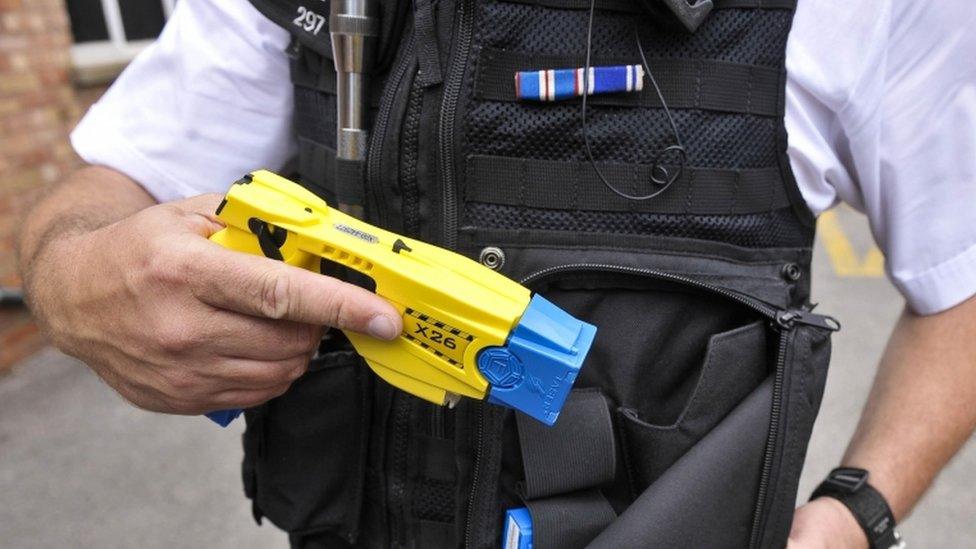
An extra £10m of funding is now available to forces in England and Wales for Tasers
More police officers could soon be carrying Tasers on the streets of Wales.
All four Welsh forces have confirmed they will bid for a share of £10m ring-fenced by the Home Office for more Taser stun weapons.
North Wales Police and Crime Commissioner Arfon Jones said he wanted the "majority of frontline officers" to carry the weapons amid safety concerns.
However human rights groups have called for restrictions on the use of Tasers.
What are Tasers?
Conductive Energy Devices (CEDs) are often known by their brand name, Tasers.
They fire two small dart-like electrodes before delivering a high-voltage shock to temporarily disable a suspect. This allows officers to deal with violent or potentially violent people at a distance.
They were introduced in the UK in 2003 for firearms officers. In 2007 they were extended to non-firearms officers known as Specially Trained Officers (STO).
Home Secretary Priti Patel said the UK Government was providing funding to equip an additional 10,000 officers with Tasers because of the rise in assaults on police.
She added: "Our brave police officers put themselves in harm's way to protect us and I am committed to giving them the tools they need to keep themselves and the public safe."
The extra money is for equipment. Commissioners must outline how many additional officers they plan to train to use the weapons when bidding for the funding.
Requests will then be considered based on the threat and risk in each local area.
The number of people cautioned or convicted for carrying knives in England and Wales has reached record levels, while the Police Federation estimates a police officer is assaulted every four minutes, external.
In response to those growing trends, North Wales Police and Crime Commissioner Arfon Jones said forces must "protect those who protect us".
"I would like to see the majority of officers equipped with a Taser when they are on the streets so they can protect themselves," he said.
"We also need to introduce tougher sentencing to send a clear message that these sorts of contemptible attacks will not be tolerated."
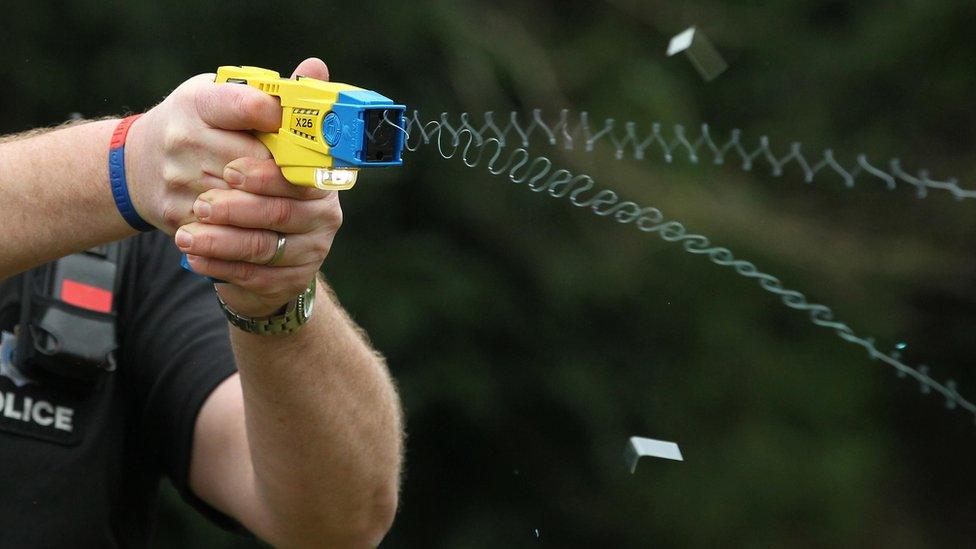
Tasers fire two small dart-like electrodes before delivering a high-voltage shock
South Wales Police, the largest force in Wales, saw the proportion of its officers trained to use Tasers rise from 10% to 20% last year. It will train a further 281 officers this year.
Its Police and Crime Commissioner, Alun Michael, has previously said all deployments must be "justifiable, proportionate, lawful, and necessary" and are scrutinised by the Home Office.
He added: "Very often, the Taser doesn't need to be used and its very presence is enough to deter an offender. In the vast majority of cases where Taser is carried, it is not deployed."
Gwent Police said it will have 350 Taser-trained officers by the end of March and will seek to increase the numbers further.
The Police and Crime Commissioner for Gwent, Jeff Cuthbert, said: "We welcome the opportunity to bid for this funding which would help to support Gwent Police's current plans to increase the number of Taser-trained officers within the force."
However campaign groups, including Amnesty International and Inquest, have warned against the use of the devices.
One of Amnesty's programme directors, Oliver Feeley-Sprague said: "Tasers are potentially-lethal weapons, which pose a number of risks, especially when misused."
A scientific advisory committee report said it was broadly satisfied by the evidence, external of the medical implications but urged constant monitoring.
Amnesty International has also urged police forces to limit the use of Tasers to only highly-trained specialist officers.
The Home Office has said the final funding allocations for forces, which cover 2019/20 and 2020/21, will be announced as soon as February.
- Published16 January 2020
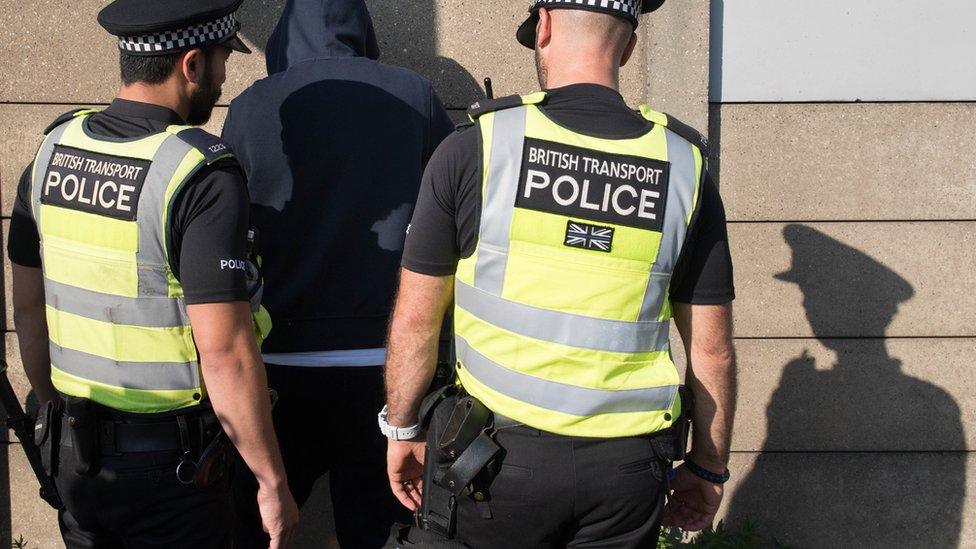
- Published20 December 2019
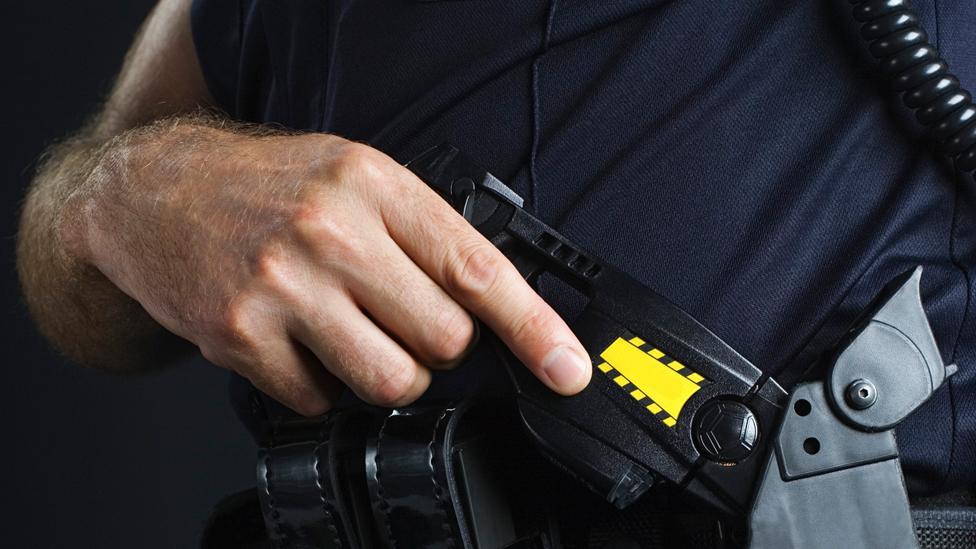
- Published24 August 2019

- Published20 August 2019
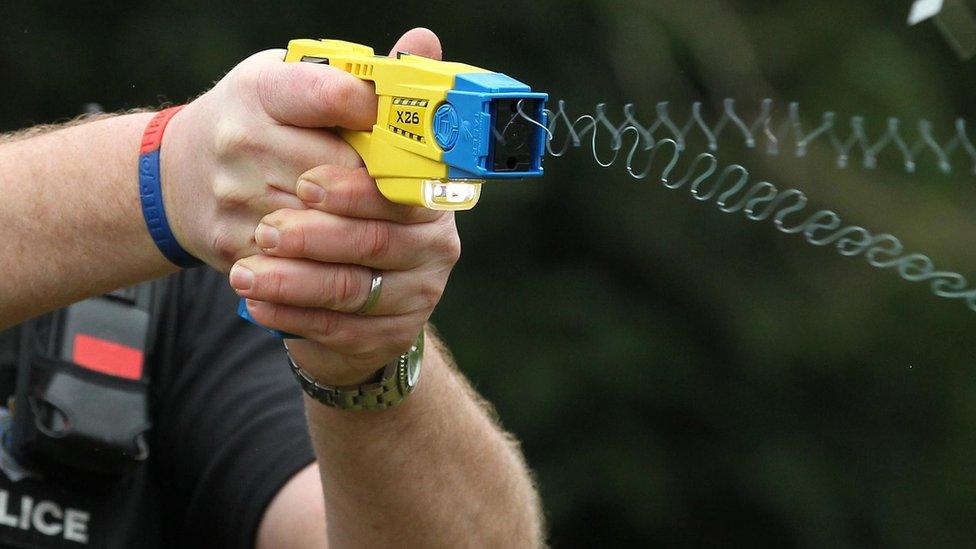
- Published4 August 2019

- Published2 August 2019

- Published17 February 2019
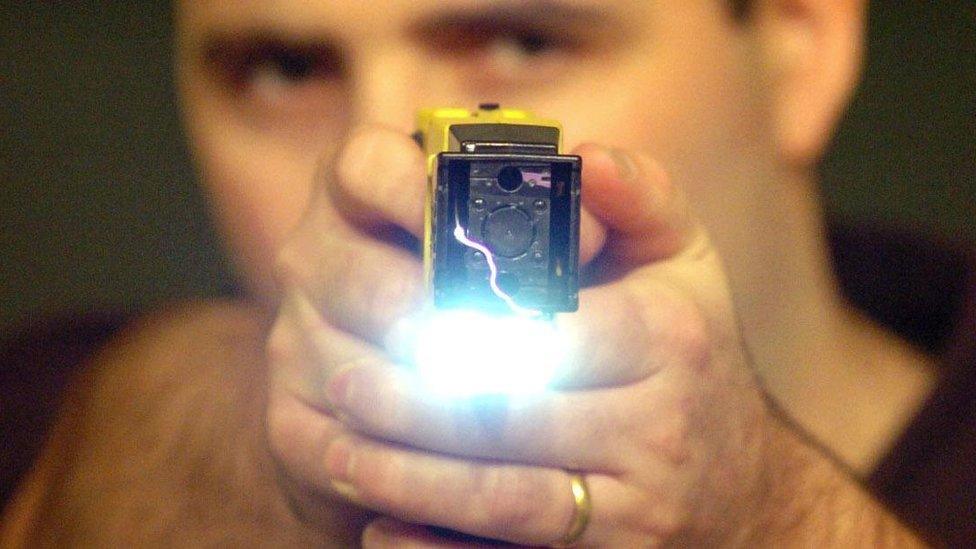
- Published28 January 2019

- Published18 September 2018
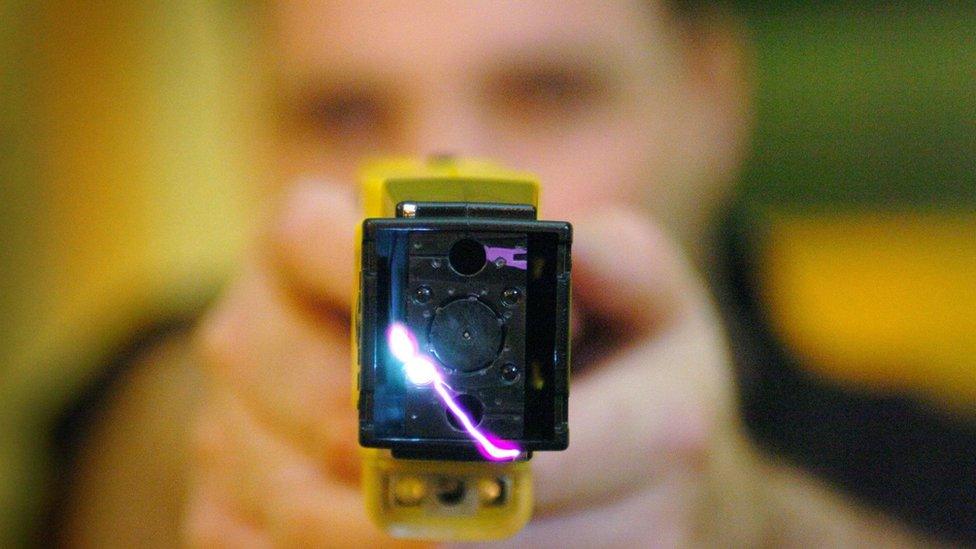
- Published31 August 2018
